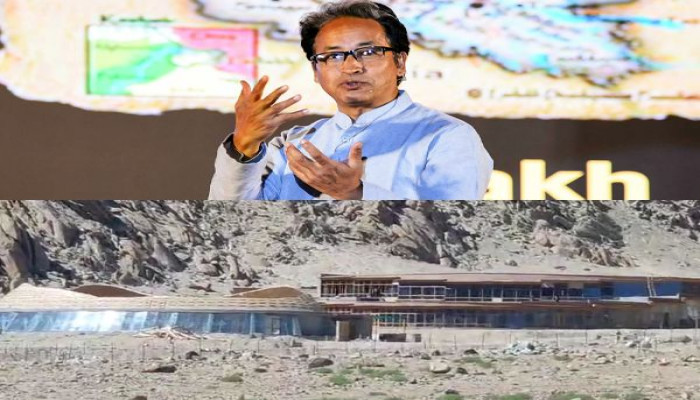Sonam Wangchuk faces scrutiny over financial defaults in Ladakh
- In Reports
- 07:55 PM, Sep 12, 2025
- Myind Staff
Once celebrated as an innovator and the inspiration for Bollywood’s Phunsuk Wangdu, educationist-turned-activist Sonam Wangchuk now finds himself at the centre of a major dispute in Ladakh.
His flagship initiative, the Himalayan Institute of Alternatives Ladakh (HIAL), has had its land allotment withdrawn after officials cited unpaid dues and violations of regulations.
In 2018, the Union Territory administration granted almost 60 hectares of government land in Phyang village for HIAL. The agreement stated clearly that Rs 14 crore had to be paid within a year and construction had to be completed within two years. Seven years later, authorities say neither requirement has been met.
Pending dues have now risen to nearly Rs 37 crore. The Ladakh administration cancelled the allotment, pointing to non-payment of lease rent and the failure to obtain recognition from statutory authorities.
“The first condition was that the institution had to obtain affiliation from a recognised university (UGC or AICTE), which was never done,” said Tsering Sangrup, Councillor, Leh. “The second was that if thousands of canals of land are allotted to any organisation, it should be on lease so that the Council receives revenue. But the institution failed to even pay the lease rent.”
Because of this, the degrees and diplomas issued by HIAL have no legal recognition, leaving hundreds of students uncertain about their future.
At a press conference, Tashi Gyalson, Chairman of the Ladakh Autonomous Hill Development Council (LAHDC), Leh, confirmed that the administration had received “several complaints” against HIAL.
“Some complaints were even forwarded to the Chief Secretary, who is also the Financial Commissioner. On examining the matter, many loopholes and violations of terms and conditions were found, which led to the cancellation of the allotment,” Gyalson said.
This setback comes at a moment when Wangchuk’s activism is drawing greater attention. Just days after attending a conference in Islamabad, he returned to India and launched new protests demanding that Ladakh be included under the Sixth Schedule.
Critics argue the timing is not accidental, warning that his campaign is being “amplified across the border” and could expose Ladakh to foreign influence.
For many villagers and administrators in the region, the journey of the well-known reformer from “Phunsuk Wangdu” to a political agitator appears less about solutions and more about unanswered questions.







Comments